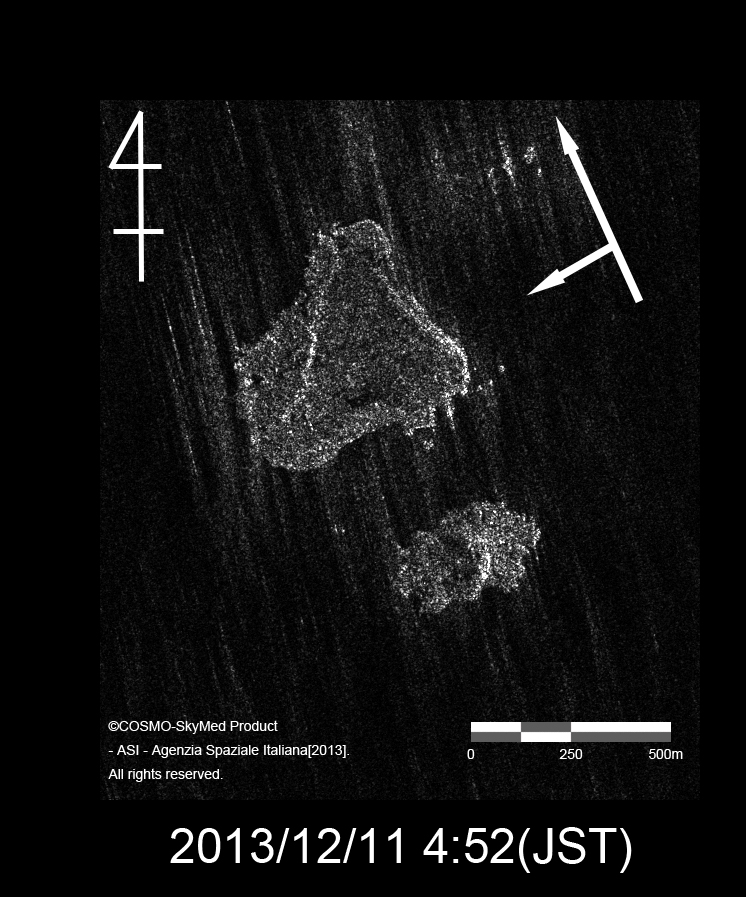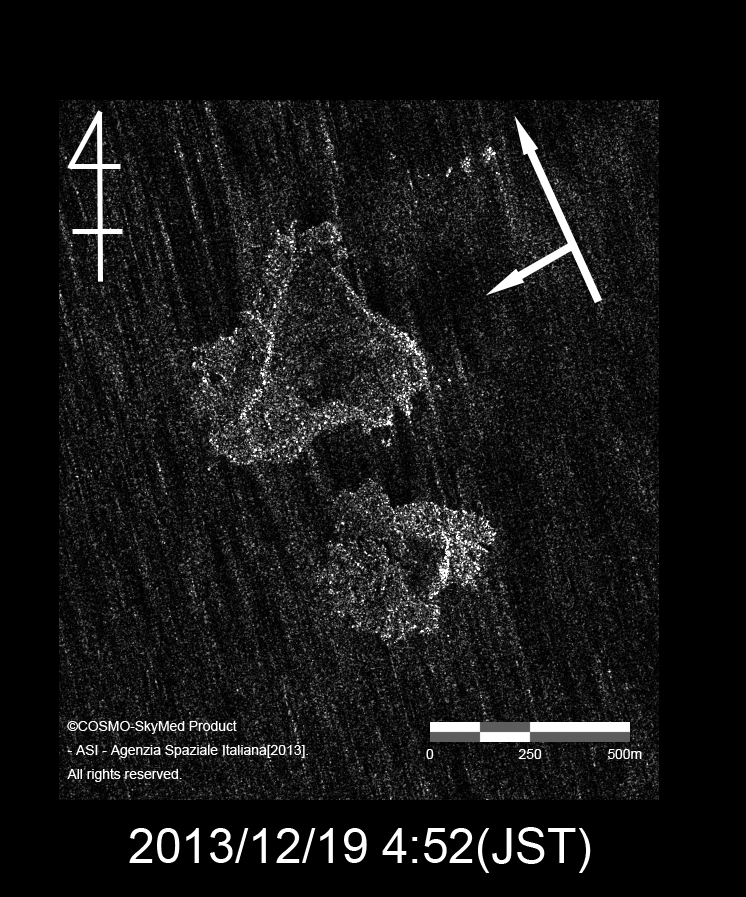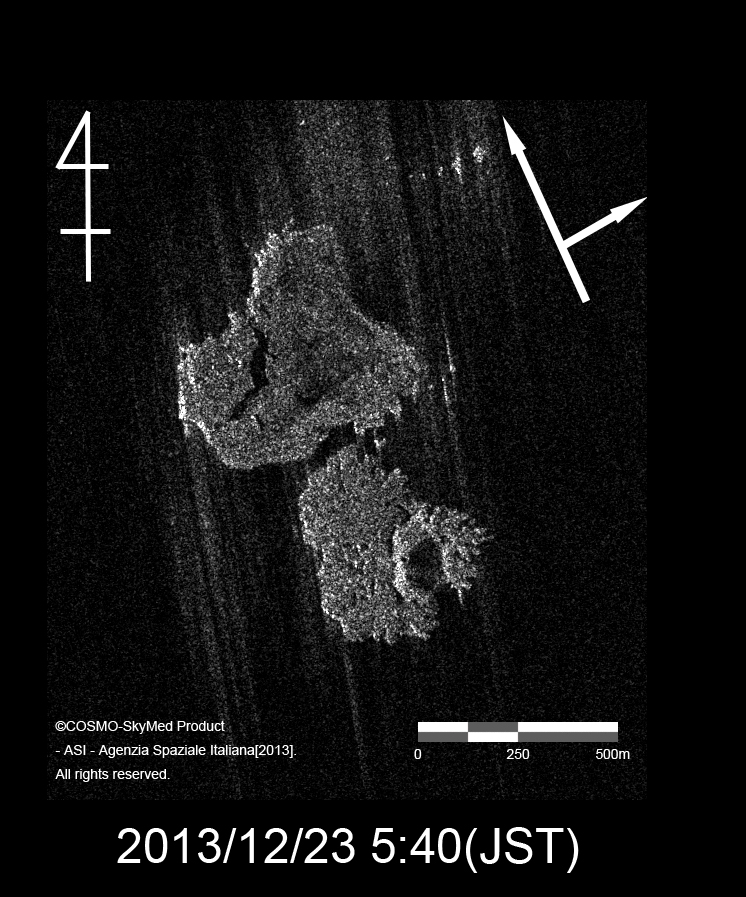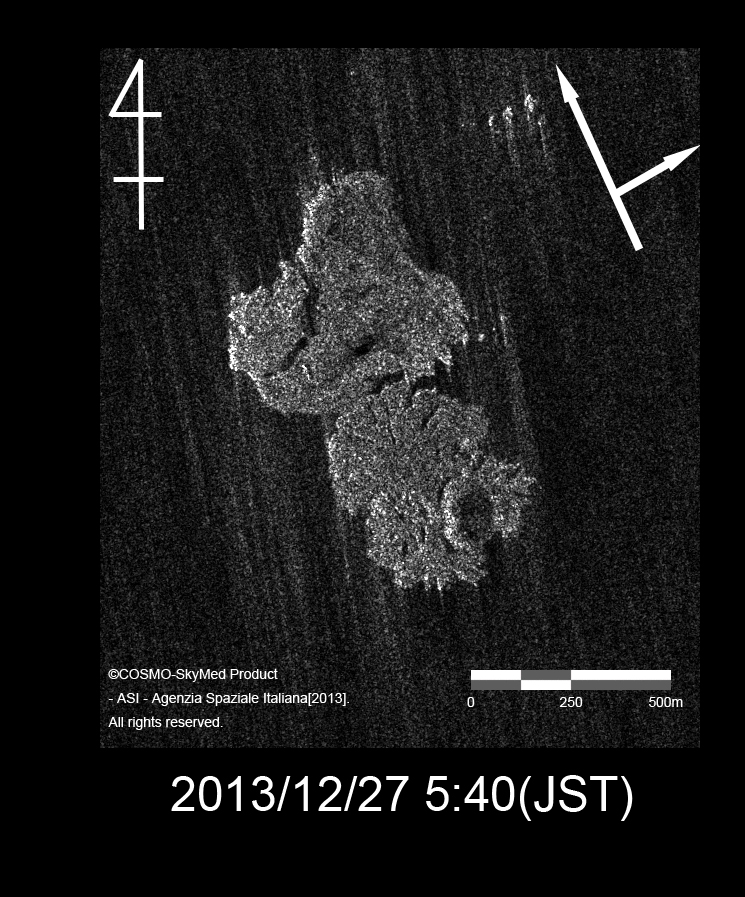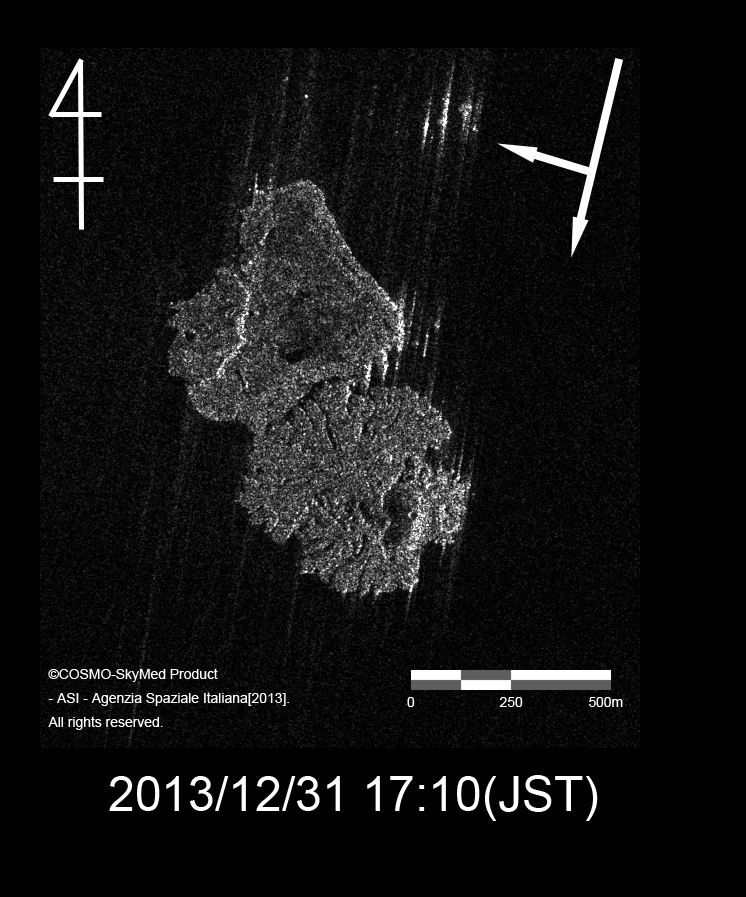Image Library
Analysis results of near of Nishinoshima Island by COSMO-SkyMed data
On November 20, 2013, Japan Coast Guard found a new island (200 meters diameter) with volcanic smoke had emerged near by Nishinoshima Island (Located in 1,000km south of Tokyo, and 130km west of Chichijima Island in the Ogasawara Islands).
The new island has grown by lava flows day by day. It was found that the new island has merged Nishinoshima Island on December 26, 2013. And volcanic eruptions still continue now on January 10, 2014.
The Japan Aerospace Exploration Agency (JAXA) conducted research and development of the disaster monitoring by satellite in collaboration with the Italian Space Agency (ASI).
In this report, we introduce the images of around Nishinoshima Island observed by COSMO-SkyMed (*1) under the framework.
Figure 1 shows the location of Ogasawara Islands (Chichijima Island and Hahajima Island) and Nishinoshima Island.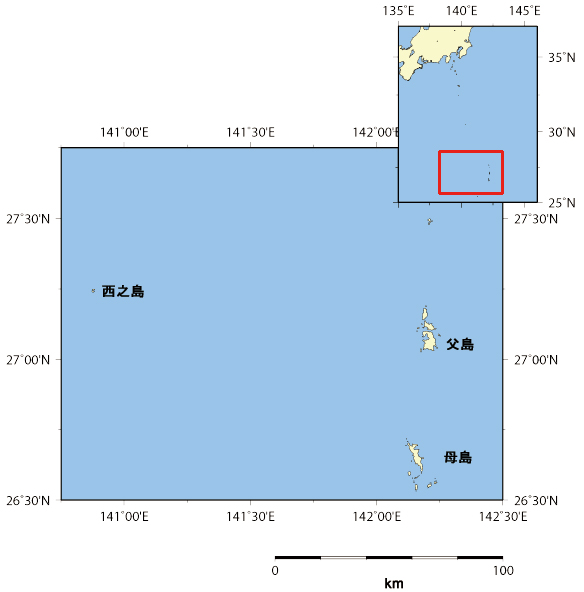
A long arrow shows the satellite direction, and a short arrow shows the beam illumination in each image.
Figure 2 shows the time-series images of COSMO-SkyMed in the sea around of Nishinoshima Island. The new island has expanded and merged with Nishinoshima from December 10 to 31, 2013.
JAXA will continue the observation and analysis at this area in collaboration with the Italian Space Agency (ASI).
(*1) COSMO-SkyMed equipped with X-band synthetic aperture radar (SAR) is the earth observation
satellite which has been developed and operated by the Italian Space Agency (ASI), in cooperation with the Italian Ministry of Defence and e-geos company.
